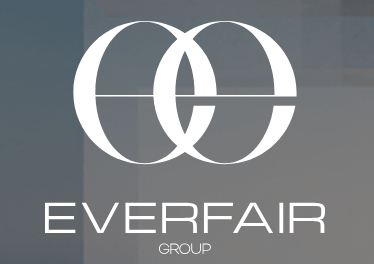
Global Law Experts
Lawyers
Countries Covered
Practice Areas
Discover award-winning Banking lawyers worldwide on Global Law Experts. Connect with independent legal experts specializing in Banking law.




















No results available Reset filters?
posted 1 month ago
posted 3 months ago
posted 5 months ago
posted 6 months ago
posted 4 months ago
No results available Reset filters?
Banking law governs a broad range of financial services, regulatory compliance, and risk management. Whether you’re navigating lending transactions, regulatory issues, or financial disputes, having experienced legal guidance is essential.
Global Law Experts connects you with seasoned banking lawyers who provide strategic, tailored counsel for financial institutions, corporations, and service providers. Our vetted specialists assist with regulatory compliance, transaction structuring, dispute resolution, and risk mitigation—helping you operate confidently in a complex financial landscape.
Every GLE member is independently vetted by practice area and jurisdiction.
A Banking lawyer acts as the legal architect for the flow of money. They structure complex transactions so that banks can lend money safely and legally, drafting the massive contracts that govern everything from billion-dollar corporate loans to simple mortgages. Beyond deals, they are regulatory guardians, interpreting thousands of pages of changing rules (like Dodd-Frank or Basel III) to ensure the bank doesn’t accidentally commit a crime or face massive fines for non-compliance.
Getting a banking license is one of the most rigorous legal processes in the business world, requiring you to prove to regulators (like the OCC or FDIC in the US) that you are safe to hold the public’s money. A lawyer manages this multi-year application by drafting a “business plan of operation” that details your capital reserves, management team’s experience, and risk protocols. They act as the face of your company in meetings with regulators, arguing that your proposed bank meets the statutory requirement of “convenience and needs of the community.”
Yes, because unlike a standard home mortgage, commercial loan agreements are highly negotiable and filled with dangerous traps called “covenants.” A lawyer reviews these affirmative and negative covenants—rules that dictate how you must run your business, such as maintaining a certain cash flow ratio or limiting new debt. If you don’t negotiate these “tripwires” correctly, a minor bad quarter could technically put you in default, allowing the bank to seize your assets immediately.
KYC is the mandatory legal process of verifying a client’s identity to prevent money laundering (AML). Legally, you must perform “Customer Due Diligence” (CDD) to identify the “Beneficial Owner”—the actual human who owns 25% or more of a corporate entity—rather than just accepting a shell company’s name. A lawyer helps you build a compliance program that checks clients against government sanctions lists (like OFAC) and flags “Politically Exposed Persons” (PEPs) who carry higher corruption risks.
Yes, if your account is frozen due to a “Suspicious Activity Report” (SAR) or a court order, a lawyer is often the only one who can unlock it. They communicate with the bank’s compliance department to determine the cause (which the bank often hides) and provide the necessary forensic accounting evidence to prove the “source of funds” was legitimate. If the freeze is due to a creditor’s lawsuit, a lawyer can file an emergency motion to “vacate” the freeze or exempt payroll funds so your business doesn’t die while the dispute is resolved.
When a regulator (like the CFPB or SEC) accuses a bank of misconduct, a lawyer acts as a buffer to control the damage. They manage the “discovery” process to ensure the regulator doesn’t get privileged documents they aren’t entitled to. Instead of fighting in public court, they often negotiate a “Consent Order”—a settlement where the bank agrees to pay a fine and fix the problem without admitting guilt, which protects the bank’s reputation and prevents a criminal conviction.
The difference is the client and the complexity. A Retail Banking lawyer focuses on consumer laws (like the Truth in Lending Act) and high-volume products for everyday people, ensuring credit card agreements and checking accounts are fair and compliant. An Investment Banking lawyer deals with massive, bespoke corporate transactions—helping companies go public (IPOs), issuing corporate bonds, or structuring complex derivatives—where the “client” is a sophisticated corporation and the regulations involve securities law rather than consumer protection.
Merging two banks is uniquely difficult because you are buying a portfolio of debt and regulatory history, not just a brand. A lawyer performs “legal due diligence” to check the quality of the target bank’s loans (are borrowers paying?) and its compliance history (are there hidden fines coming?). They also manage the critical regulatory approval process, proving to the Federal Reserve that the merger won’t create a monopoly or threaten the stability of the financial system.
A Banking lawyer acts as the legal architect for the flow of money. They structure complex transactions so that banks can lend money safely and legally, drafting the massive contracts that govern everything from billion-dollar corporate loans to simple mortgages. Beyond deals, they are regulatory guardians, interpreting thousands of pages of changing rules (like Dodd-Frank or Basel III) to ensure the bank doesn't accidentally commit a crime or face massive fines for non-compliance.
Getting a banking license is one of the most rigorous legal processes in the business world, requiring you to prove to regulators (like the OCC or FDIC in the US) that you are safe to hold the public's money. A lawyer manages this multi-year application by drafting a "business plan of operation" that details your capital reserves, management team's experience, and risk protocols. They act as the face of your company in meetings with regulators, arguing that your proposed bank meets the statutory requirement of "convenience and needs of the community."
Yes, because unlike a standard home mortgage, commercial loan agreements are highly negotiable and filled with dangerous traps called "covenants." A lawyer reviews these affirmative and negative covenants—rules that dictate how you must run your business, such as maintaining a certain cash flow ratio or limiting new debt. If you don't negotiate these "tripwires" correctly, a minor bad quarter could technically put you in default, allowing the bank to seize your assets immediately.
KYC is the mandatory legal process of verifying a client's identity to prevent money laundering (AML). Legally, you must perform "Customer Due Diligence" (CDD) to identify the "Beneficial Owner"—the actual human who owns 25% or more of a corporate entity—rather than just accepting a shell company's name. A lawyer helps you build a compliance program that checks clients against government sanctions lists (like OFAC) and flags "Politically Exposed Persons" (PEPs) who carry higher corruption risks.
Yes, if your account is frozen due to a "Suspicious Activity Report" (SAR) or a court order, a lawyer is often the only one who can unlock it. They communicate with the bank's compliance department to determine the cause (which the bank often hides) and provide the necessary forensic accounting evidence to prove the "source of funds" was legitimate. If the freeze is due to a creditor's lawsuit, a lawyer can file an emergency motion to "vacate" the freeze or exempt payroll funds so your business doesn't die while the dispute is resolved.
When a regulator (like the CFPB or SEC) accuses a bank of misconduct, a lawyer acts as a buffer to control the damage. They manage the "discovery" process to ensure the regulator doesn't get privileged documents they aren't entitled to. Instead of fighting in public court, they often negotiate a "Consent Order"—a settlement where the bank agrees to pay a fine and fix the problem without admitting guilt, which protects the bank's reputation and prevents a criminal conviction.
The difference is the client and the complexity. A Retail Banking lawyer focuses on consumer laws (like the Truth in Lending Act) and high-volume products for everyday people, ensuring credit card agreements and checking accounts are fair and compliant. An Investment Banking lawyer deals with massive, bespoke corporate transactions—helping companies go public (IPOs), issuing corporate bonds, or structuring complex derivatives—where the "client" is a sophisticated corporation and the regulations involve securities law rather than consumer protection.
Merging two banks is uniquely difficult because you are buying a portfolio of debt and regulatory history, not just a brand. A lawyer performs "legal due diligence" to check the quality of the target bank's loans (are borrowers paying?) and its compliance history (are there hidden fines coming?). They also manage the critical regulatory approval process, proving to the Federal Reserve that the merger won't create a monopoly or threaten the stability of the financial system.
Global Law Experts is dedicated to providing exceptional legal services to clients around the world. With a vast network of highly skilled and experienced lawyers, we are committed to delivering innovative and tailored solutions to meet the diverse needs of our clients in various jurisdictions.

Thinking of buying property in Brazil? Start with a full legal safety net.
✔️ Check title and ownership history
✔️ Verify no debts or disputes
✔️ Confirm zoning and permits.
#BrazilProperty #RealEstateInvesting #LegalDueDiligence #ForeignInvestment #PropertyLaw #GlobalRealEstate #InvestmentRisk #BrazilLaw

When your international business faces financial distress, quick action is key! 🔑 Negotiating with creditors, restructuring debt, and understanding insolvency laws can help regain stability. Global Law Experts is here to guide you through your options.
🌍Explore the details on our website.
🔗Link in bio
#GlobalLawExperts #CommercialLaw #BusinessLaw #LegalAdvice #BusinessGrowth #LegalTips #BusinessStrategy #LegalCompliance #Law #LegalKnowledge #LegalAwareness #Law101 #LegalEducation #IntellectualProperty

Thinking of buying property in Brazil? Don’t stop at the contract or key handover. Make sure the title is officially registered before calling it yours.
#BrazilRealEstate #PropertyLaw #GlobalInvestment #ForeignInvestors #LegalTips #DueDiligence #RealEstateRegistration #SecureInvestment

Getting a termination notice right now? Know your rights. Valid reason, fair process, proper notice they matter. Don’t let a bad dismissal walk away without accountability.
#EmploymentLaw #WorkerRights #Termination #LaborLaw #FairDismissal #WorkplaceJustice #LegalAwareness #GlobalWorkforce

Running a business is hard enough — lawsuits shouldn’t make it harder. 🚫 Protect your business with the right legal strategies and expert tools from Global Law Experts. Let’s secure your future together! 💼
🌍Explore the details on our website.
➡️www.globallawexperts.com
#GlobalLawExperts #CommercialLaw #BusinessLaw #LegalAdvice #BusinessGrowth #LegalTips #BusinessStrategy #LegalCompliance #Law #LegalKnowledge #LegalAwareness #Law101 #LegalEducation #IntellectualProperty #Infringed #Ecommerce #LegalBranding
Global Law Experts is dedicated to providing exceptional legal services to clients around the world. With a vast network of highly skilled and experienced lawyers, we are committed to delivering innovative and tailored solutions to meet the diverse needs of our clients in various jurisdictions.

Thinking of buying property in Brazil? Start with a full legal safety net.
✔️ Check title and ownership history
✔️ Verify no debts or disputes
✔️ Confirm zoning and permits.
#BrazilProperty #RealEstateInvesting #LegalDueDiligence #ForeignInvestment #PropertyLaw #GlobalRealEstate #InvestmentRisk #BrazilLaw

When your international business faces financial distress, quick action is key! 🔑 Negotiating with creditors, restructuring debt, and understanding insolvency laws can help regain stability. Global Law Experts is here to guide you through your options.
🌍Explore the details on our website.
🔗Link in bio
#GlobalLawExperts #CommercialLaw #BusinessLaw #LegalAdvice #BusinessGrowth #LegalTips #BusinessStrategy #LegalCompliance #Law #LegalKnowledge #LegalAwareness #Law101 #LegalEducation #IntellectualProperty

Thinking of buying property in Brazil? Don’t stop at the contract or key handover. Make sure the title is officially registered before calling it yours.
#BrazilRealEstate #PropertyLaw #GlobalInvestment #ForeignInvestors #LegalTips #DueDiligence #RealEstateRegistration #SecureInvestment

Getting a termination notice right now? Know your rights. Valid reason, fair process, proper notice they matter. Don’t let a bad dismissal walk away without accountability.
#EmploymentLaw #WorkerRights #Termination #LaborLaw #FairDismissal #WorkplaceJustice #LegalAwareness #GlobalWorkforce

Running a business is hard enough — lawsuits shouldn’t make it harder. 🚫 Protect your business with the right legal strategies and expert tools from Global Law Experts. Let’s secure your future together! 💼
🌍Explore the details on our website.
➡️www.globallawexperts.com
#GlobalLawExperts #CommercialLaw #BusinessLaw #LegalAdvice #BusinessGrowth #LegalTips #BusinessStrategy #LegalCompliance #Law #LegalKnowledge #LegalAwareness #Law101 #LegalEducation #IntellectualProperty #Infringed #Ecommerce #LegalBranding

Send welcome message